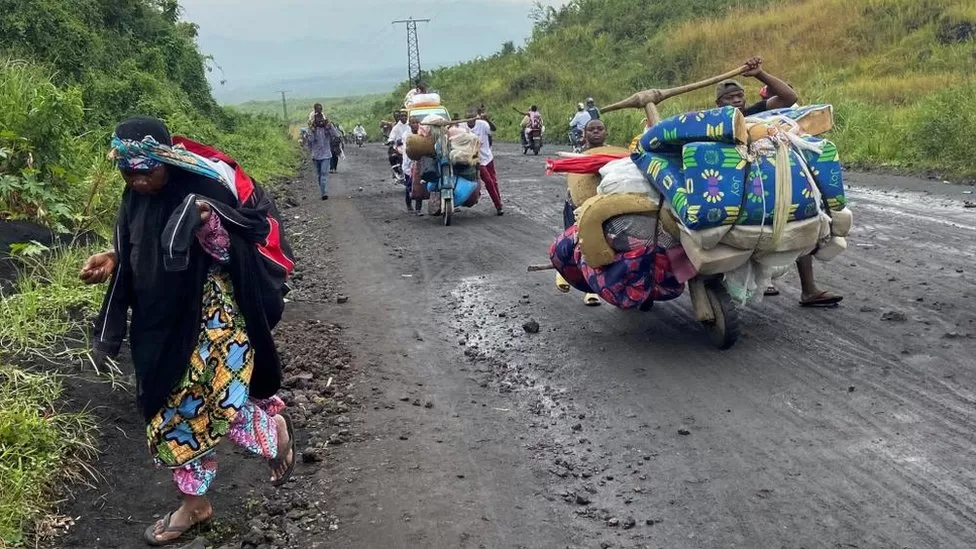The government’s deal to deport asylum seekers to Rwanda risks “downgrading” UK foreign policy, a former cabinet minister has said.
A final report by a United Nations Group of Experts, published earlier this month, concluded that the Rwandans were supporting the M23 rebel group which is active in the neighbouring Democratic Republic of Congo (DRC) and is subject to UN and US sanctions.
Justine Greening withdrew £21m in aid funding to the country in 2012 when she was international development secretary after the United Nations first reported that the Rwandans were helping the M23 rebels.
While the US and EU have directly told the Rwandan government to cease its support for M23, a UK regional envoy released a more general statement condemning “external” support for rebels without naming Rwanda.
Rwanda has consistently denied supporting the rebellion.
Ms Greening told BBC Newsnight: “It’s important that UK foreign policy and this country’s leadership on important matters of human rights atrocities including violence against women is not downgraded as a result of our domestic policy approaches.
“This UN report also underlines the practical complexity and sustainability issues of intertwining the delivery of Britain’s asylum policy with any third country, particularly one facing such demonstrable wider regional stability challenges,” she said.
https://emp.bbc.com/emp/SMPj/2.49.3/iframe.htmlMedia caption,
Watch: Braverman “disappointed” with Rwanda ruling
The UN report, written for the Security Council, said advances by the M23 group had displaced a million citizens in Kivu province and that in the mineral rich areas where it was active there were “incidents of rape, including gang rape by M23”.
It also named Rwandan Defence Force generals and advisers to President Kagame as directing some M23 activity. The Rwandan government has said the report is “concocted”.
On Thursday the Court of Appeal ruled that the UK government’s Rwanda policy was unlawful.
Prime Minister Rishi Sunak has vowed to take the matter to the UK Supreme Court.
The five-year trial – announced in April 2022 – would see some asylum seekers sent to Rwanda on a one-way ticket, to claim asylum there.
They may be granted refugee status to stay in Rwanda. If not, they can apply to settle there on other grounds, or seek asylum in another “safe third country”.
The government says the plan will deter people arriving in the UK through “illegal, dangerous or unnecessary methods”, such as on small boats which cross the English Channel.
A government spokesperson told the BBC: “Our ground-breaking Migration and Economic Development Partnership will see those who make dangerous and illegal journeys to the UK relocated to Rwanda, where they will be supported to build new lives.
“Rwanda is a safe and secure country, with a track record of supporting asylum seekers.”
